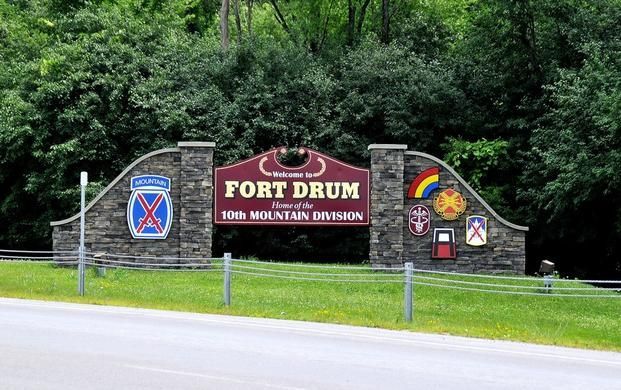The local role in creating vibrant, welcoming communities
In the summer of 2021, more than 100 citizens participated in the 14th annual CGA Forum, whose theme was Creating Vibrant and Welcoming Communities. Coming out of the forum, we endeavored to distill participant insights and feedback into selected recommendations across four priority themes: housing, creating vibrant economies, community-based recreation, and climate change mitigation and adaptation. What follows are ideas for action that can be implemented by municipalities and organizations at the community level within the Park.
HOUSING IN ADIRONDACK COMMUNITIES
A range of housing options is severely lacking, yet urgently needed to ensure the health of our communities.
– Leverage existing state and county-led programs and foster partnerships with private business, non-profits, and state & local governments to develop a diverse housing stock in our communities.
– Facilitate research and studies in communities that have made progress in solving housing shortages and/or conduct housing market analyses, and make recommendations to local government leaders.
– Conduct outreach to non-profits and local government leaders to aggregate useful information about local zoning codes, water and sewer access, and opportunities to maximize density.
– When appropriate, work to define and distinguish between owner-occupied vs. commercial or non-owner-occupied short-term rentals, to aid municipalities who may be seeking to regulate short-term rentals in an equitable way.
– Review, update, or develop local land use plans and regulations to ensure housing choices and opportunities can be appropriately located within communities.
– Identify critical infrastructure (sewer and water) needs to support housing opportunities.
– Assist communities in undertaking any necessary engineering studies to qualify for federal and state infrastructure funding.
CREATING VIBRANT ECONOMIES
We need to foster career opportunities, develop high-quality jobs (including those that protect and/or depend on clean water and natural resources) and support entrepreneurs to start or grow businesses.
– Develop a community jobs board to provide residents with a common database for finding contractors and other services.
– Provide shared workspaces in downtown settings with high-speed internet. Ensure the community can provide the amenities likely to attract workers from other regions, including teleworkers.
– Provide basic business education training, covering subjects such as contract drafting, accessing insurance, bookkeeping, etc.
– Actively promote and utilize Small Business Development Center services, local development corporations, county industrial development agencies, chambers of commerce, economic development agencies, and other workforce development organizations to better support the local business community.
– Convene community and regional discussions to optimize the pursuit and expenditure of state and federal funds supporting families and childcare, broadband, infrastructure, etc.
COMMUNITY-BASED RECREATION
Diverse recreational activities on Forest Preserve and easement lands should complement community-based recreational assets to enhance community vitality, attract new residents, and increase visitation.
– Leverage increased recreation visitation by complementing outdoor amenities with cultural offerings and community infrastructure, including local food and drink.
– Expand use of conservation easements to offer a variety of recreational opportunities on public and private lands and facilitate regional recreation networks.
– Standardize information about recreational opportunities across communities, differentiate between information and marketing, and utilize a common language and real-time information, whenever possible.
– Increase local event offerings focused on recreation opportunities.
– Broaden partnerships between communities and other stakeholders to support increased and better-distributed recreational use, leave-no-trace education, visitor safety, and a better understanding of carrying capacity and management efforts to preserve the recreational experience and resource.
CLIMATE CHANGE MITIGATION & ADAPTATION
Build upon New York’s Climate Leadership and Community Protection Act to support reductions in climate-warming emissions, augment resilience to better prepare for climate change impacts, maintain ecological function, bolster carbon sequestration potential on public and private lands, and foster biodiversity in our natural systems.
– Identify opportunities to develop and participate in “communities of practice” to share lessons learned and success stories among municipal leaders, NGOs, and academic institutions.
– Example: Institute “community exchange days” to showcase local projects, on-the-ground progress toward climate objectives, and the pursuit of “climate smart” and/or “clean energy” community status.
– Leverage existing capacity and resources by preparing state and federal grant applications and undertaking projects on multi-community and/or watershed scales.
– Build support for locally led climate change mitigation strategies, including, but not limited to, electrification of municipal fleets, installation of EV charging infrastructure, forestry practices that sequester carbon (and offer biodiversity co-benefits), and open space stewardship.
– Volunteers play an integral role in local action and provide a space for newcomers to engage with their community and foster new connections – support and actively solicit volunteers for education and engagement in local planning initiatives, programs, and projects.
– There are numerous other concerns related to climate change and opportunities for the Adirondacks to be a leader in NYS – we encourage communities to have these conversations.
We look forward to helping you advance these and other common goals, including efforts to address environmental justice and foster more diverse, equitable, inclusive and safe communities for all. To learn more about the Common Ground Alliance, go to commongroundadk.org. CGA contacts: Zoë Smith (518) 327-6276, zsmith1@paulsmiths.edu ; Ross Whaley (518) 359-9631, rosswhaley@roadrunner.com ; Cali Brooks (518) 523-9904, cali@adkfoundation.org.
ABOUT
The Adirondack Common Ground Alliance (CGA) is a diverse network of stakeholders focused on addressing issues that affect the Adirondack Park. Created in 2007, CGA gives voice to shared recommendations for state and local actions that benefit the Adirondacks. CGA supports the twin goals of environmental quality and economic vitality, with the aim of making the Adirondack Park and its communities sustainable for generations to come.
The post 2022 Community Blueprint for the Blue Line appeared first on Common Ground Alliance.
All Rights Reserved | Common Ground Alliance


